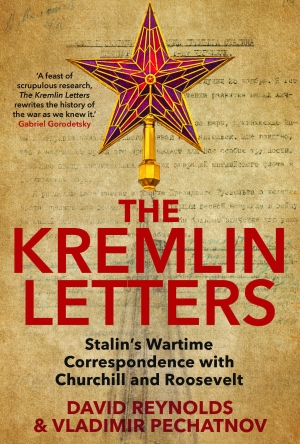Yale University Press
Chris Wallace-Crabbe reviews 'A Little History of Poetry' edited by John Carey
I must admit to being intrigued by any self-proclaimed ‘Histories of Everything’, so I leapt at the prospect of a dense history of my favourite creative art and how it flourished in our past centuries, right down to a couple of writers who died in 2019. And occidental only: that is, apart from a sidelong glance at Hafez, Tagore, and Li Po’s fellow poets. Unless you regard the Russians, that is – bridging East and West.
... (read more)Andrew Ford reviews 'Irving Berlin: New York genius' by James Kaplan
At the end of 1910, Irving Berlin took a winter holiday in Florida. James Kaplan writes, ‘Here we must pause for a moment to consider the miracle of a twenty-two-year-old who in recent memory had sung for pennies in dives and slept in flophouses becoming a prosperous-enough business man to vacation in Palm Beach.’
... (read more)Paul Kildea reviews 'The Letters of Cole Porter' edited by Cliff Eisen and Dominic McHugh
Sometime in the early 1970s – his health poor, his country’s no better – the English composer Benjamin Britten asked his good friend and publisher Donald Mitchell to write his biography, imploring him to tell the truth about his long-term relationship with the tenor Peter Pears. In the ten years that followed Britten’s death in 1976, Mitchell amassed thoughts and notes, all the while deflecting the common query among friends and those outside the hallowed circle, ‘How’s the biography going?’
... (read more)Aaron Nyerges reviews 'Ben Hecht: Fighting words, moving pictures' by Adina Hoffman
In his long poem The Bridge (1930), Hart Crane balances the breadth of his epic vision against a compressive energy, a ballistic sort of expression: ‘So the 20th Century – so / whizzed the Limited – roared by and left.’ Since Crane worked in an American tradition of poet–prophets that includes Walt Whitman and the undersung H.D. (Hilda Doolittle), it is tempting to grant him that. The twentieth century did roar by and go. And the 20th Century Limited, the luxurious passenger train connecting New York to Chicago, furnished it (and him) with an expression of the century’s quarrelsome momentum, its loud, emblematic modernity.
... (read more)Tom Bamforth reviews 'Future Proof: How to build resilience in an uncertain world' by Jon Coaffee
In Future Proof, Jon Coaffee, professor in urban geography at the University of Warwick, asks readers to imagine ‘a typical day’: radio reports of an impending cyclone; public-transport posters encouraging the reporting of ‘suspicious activity’; the path to an office (especially in a CBD) protected by hostile-vehicle-mitigation bollards. At work, computer systems will be tested for security from cyber attacks. The train home will be delayed due to a network complication, and the evening’s television will show the cyclone’s impact, discussing the relative ineffectiveness of hazard mitigation.
... (read more)Kári Gíslason reviews 'Henrik Ibsen: The man and the mask' by Ivo de Figueiredo, translated by Robert Ferguson
Kelly D. Wiltshire reviews A Little History of Archaeology by Brian Fagan
As the old saying goes, one should never judge a book by its cover; however, the instantly recognisable iconography on the cover of A Little History of Archaeology does provide an insight into this book’s content ...
... (read more)Rémy Davison reviews The Lessons of Tragedy: Statecraft and world order by Hal Brands and Charles Edel
'History repeats itself,’ Karl Marx wrote presciently in The Eighteenth Brumaire of Louis Napoleon. ‘The first time as tragedy, the second time as farce.’ The central themes of Hal Brands and Charles Edel’s The Lessons of Tragedy are clear. In the developed world, we are complacent about world order, democracy, and civil society ...
... (read more)Sheila Fitzpatrick reviews The Kremlin Letters edited by David Reynolds and Vladimir Pechatnov
Joseph Stalin wanted this wartime correspondence published, and one can see why: he comes off best. As the authors comment, ‘the transcript of the Big Three meetings demonstrates Stalin’s careful mastery of the issues and his superior skill as a diplomatist, regularly keeping his silence but then speaking out in a terse and timely manner at key moments’. He is ...
Alex Tighe reviews Delayed Response: The art of waiting from the ancient to the instant world by Jason Farman
‘A book about waiting’ was perhaps a hard sell for Jason Farman to make to his publisher. Waiting, so the consensus goes, sucks. It is the elephant graveyard of time, the dead zone between something and something else. Who would want to spend more time on waiting? It helps to clarify that Delayed Response is not ...
... (read more)









